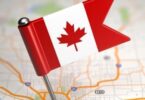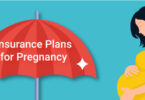
Coronavirus popularly abbreviated to COVID19 has been a recent pandemic that has been on the rise. Many have been wondering how it came about, why it became a pandemic now, who released it, and plenty of other questions. Knowledge is power, but how do you want to empower yourself at the moment. Amassing knowledge, you will take to the grave or knowing how to survive this pandemic to tell tales to the next generation. A lot of people want to follow the trend, discuss topics as they know all, but it is wise to be alive when all is over. I will be taking on a tour on how to test for Coronavirus in the USA without health insurance.
I would love to take you through the origin of this deadly virus, but if you are interested in knowing about that, here is a link. We will focus on the early discovery of the virus even without sufficient insurance policy.
Symptoms to watch out for
Symptoms associated with the Coronavirus infections are:
- Dry cough
- Fever
- Body aches/ pains
- Weakness/ Fatigue
- Difficult breathing
- Sore throat
- Nasal congestion
- Diarrhea
- Runny nose
You might get these symptoms and feel the need to self-medicate, but you need to know that it takes 14days for the virus to manifest. In this incubation period, you need to eradicate it from your system before it becomes severe.
Testing for Coronavirus in USA
It is of utmost importance to test yourself early for the virus to avoid the severity of your case. These tests are quite expensive, though, as we estimate $1,300. How does one pay for this test when you have missed work and pay for past weeks.
Luckily, the government has pushed for all insurers to be able to cover the bills of the testing. It is to encourage timely testing, which will help curb the spread of the virus. Medicare and Medicaid are also in collaboration with the health sector to finance these tests, so you shouldn’t be scared about testing. Although this is in play, we have also to help manage the government finances as the economy is down. The longevity of this situation will crumple the government finances and force them to withdraw from giving free tests. So, we have to help the government to improve ourselves.
How to reduce the costs of healthcare
In as much as the government offers free testing, they still issue bills for the treatment and control of infected individuals. You have to be ready for steps to take if you report positive to the test of Coronavirus in USA
There are advisable procedures to follow to avoid amassing a hefty bill for yourself;
- Call a professional medical expert for advice first
- Check out available telehealth options around you
- Avoid going straight to the ER before consultations
- Track your costs to account for the bill
These steps might sound a little vague, but we can simplify
Calling a professional medical expert for advice
If you are having the symptoms above listed and you feel its not just a minor issue but might be the Coronavirus. You can call your doctor and lay a complaint, and you’ll get a professional survey to tell you what you might be suffering correctly.
In an event where you don’t have a doctor, you can easily reach out to your local Medical Centre. There are specific questions to confirm if you have the infection, and advice will be given on the next steps to follow.
Your state health department can also be of help during times like this. Most of them have provided dedicated call centers to handle questions and concerns related to the Coronavirus.
Checking Available Telehealth options around
Another way to save yourself the cost of a trip to the doctor’s office is to make use of available telehealth options around you. Many insurers have 24-hour nurse hotline programs to assist people, aside from available telehealth options available. It helps to decide if you need to come in or can manage treatment at home.
This option helps to reduce the spread of the COVID-19 as you risk sharing with others in the waiting room if you are infected. You also can save yourself from contracting it too if you are not affected as you won’t have to be in the same room with infected people.
Avoid going straight to the ER before consultations
If you are not experiencing severe symptoms yet, it is advisable to avoid visiting the ER as your first option. The costs of using the emergency resources are high due to its limited availability and are needed by those that are seriously ill.
The free tests are readily available to those that are seriously ill and those that recently traveled to highly infected regions or have had physical interactions with infected people. Rushing to a hospital for a free test might be futile unless you are in luck.
Track your costs to account for your bill
This last step is constructive, as it will serve as a guide, and you won’t be shocked by the final bill. In cases of error, you will also be able to correct the numbers. You can get a family member to help keep track of your running costs so you can account for every dollar spent. It is also essential to know that some of the fees may be covered or waived.
Problems the uninsured might face during this pandemic
The ratio of uninsured to insured in the United States remain high. The high costs of getting an insurance policy or recent change in their lives that might have led to the loss of coverage for most low-income individuals. Many that could have access to financial assistance for coverage are denied due to the state’s refusal to expand Medicaid.
Financial loss
The US doesn’t have a federal law that enables workers to be eligible for paid leave, although some states require paid leave. Many uninsured fall into this category while some are also on a low wage. Some of them lose their pay and are on a significant financial loss as they leave their jobs to stay at home in a bid to control the pandemic.
Congress enacted a paid sick leave law, but it still won’t get to every uninsured individual out there. The law compels all public agencies and private firms with 50 to 500 employers to compensate workers for a portion of their salary during the emergency quarantine period. It, however, does not cover every worker, especially those whose firm has more than 500 employees.
Getting emergency treatments or tests
Most uninsured don’t have a specific place for medical care as they usually don’t go for regular services. They might not know where to go for testing, even if they have been exposed to the virus. Some are scared to go because they cannot cover the out-of-pocket costs for tests. Although most hospitals are required to screen and stabilize emergent patients, they are not compelled to do it for free. The high price of the Emergency Department pushes the uninsured away from the ED care.
Large bills
People without insurance coverage usually have to pay in full for medical services offered to them. It is a significant stumbling block though they can get better rates at community health centers and safety net providers. These cheaper alternatives usually don’t have an ample supply of resources and excellent capacity for the number of uninsured individuals.
Some might meet the criteria for the hospital’s charity care program to receive services at a discounted price. Again, not all hospitals have charity care programs to support those testing for Coronavirus in USA.
The federal legislation in the wake of this pandemic has asked for free testing of uninsured individuals. It is to curb the spread of the Coronavirus in the USA. Medicaid is being expanded into various states to cover for the screening of individuals. It, however, does not cover treatment costs. The estimate of treating Coronavirus without complications is $9,500, while severe cases cost $20,000. Out-of-pocket fees are also roughly at $1,300.
It is necessary to call in than visiting the doctor immediately. It saves some costs and gives you a peek into what to expect before going in to save your life. Many need this information as they don’t have the luxury to easily foot bills of these magnitudes hence the need to write about testing for Coronavirus in the USA without health insurance.
Remember, the essentials to being safe are still;
- Washing your hands at regular intervals to remove the virus off your hands
- Cough into your elbow to help reduce the spread.
- Try to avoid touching your face as you might be introducing the virus into your respiratory tract
- Keep a safe distance as you can never know who might want to sneeze some Coronavirus to you
- Self-isolate if you can to help yourself and others.
Be safe as we wait for an end to this evil virus.






